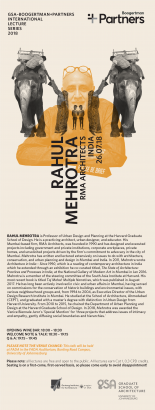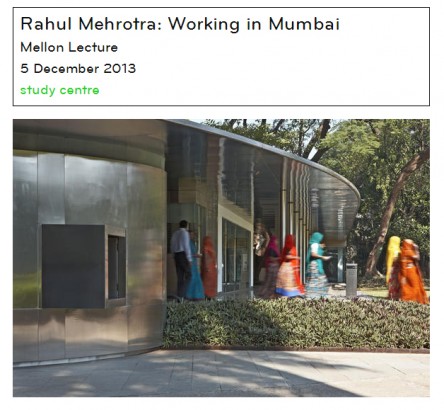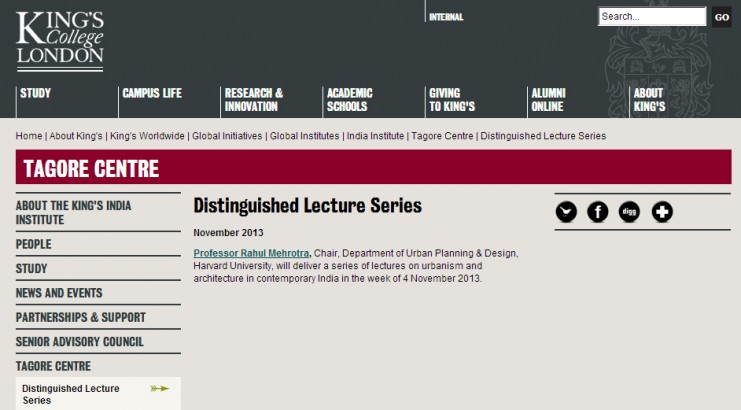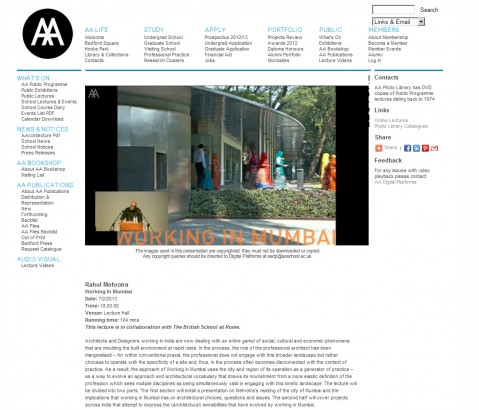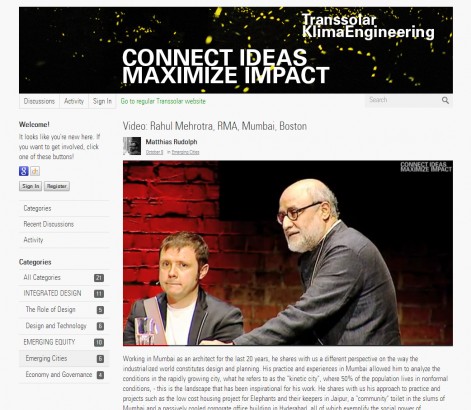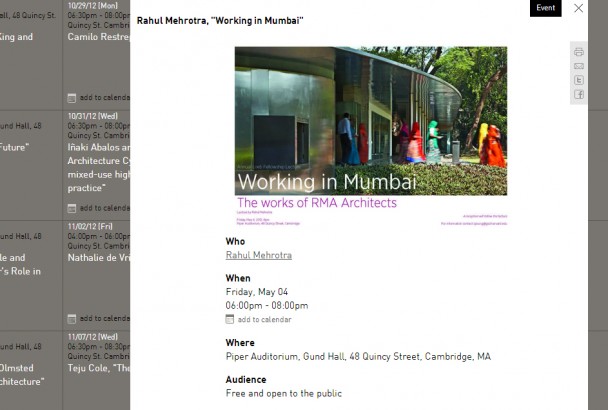Rahul Mehrotra will give a lecture on July 26 in Johannesburg, South Africa as part of the GSA Boogertman+Partners International Lecture Series. Events begin at 18:00 in the FADA Auditorium at the University of Johannesburg.
Rahul Mehrotra will deliver the Mellon Lecture (as part of his Mellon Senior Fellowship) at the Canadian Centre for Architecture (CCA) in Montreal, Quebec on December 5.
More information can be found here.
Rahul Mehrotra will deliver the Tagore Lecture Series at King’s College, London during the week of 4 November 2013.
More information here.
The video can be view on the AA’s website here.
As part of Transsolar KlimaEngineering’s CONNECT IDEAS – MAXIMIZE IMPACT Symposium in Stuttgart, Germany – Rahul presents on ‘Emerging Cities’ in this recorded talk.
See all of the talks on ‘The Role of Design,’ ‘Design and Technology’ and ‘Emerging Cities’ here.
Rahul Mehrotra delivers the 2012 Annual Loeb Fellowship Lecture at the Harvard Graduate School of Design.
Discussion with Rahul Mehrotra, MAUD ’87, Chair of the Department of Urban Planning and Design, and Hitesh Hathi, AM ’97, GSA ’88, producer for Here & Now.
MUMBAI, August 3, 2011 — Rahul Mehrotra discusses the impact of globalization on India’s built environment.
A Collaborative Studio and Research Project, Spring 2011
Rahul Mehrotra, Chair of Urban Planning and Design at Harvard Graduate School of Design, provided the leadership for this studio and research project with collaboration from
Harvard Kennedy School of Government, Harvard Business School, Real Estate Academic Initiative at Harvard University and the Loeb Fellowship at the Graduate School of Design.
Speaker: Professor Rahul Mehrotra
This event was recorded on 18 May 2010 in Wolfson Theatre, New Academic Building
Mumbai, a Kinetic City, presents a compelling vision that potentially allows us to better understand the blurred lines of contemporary urbanism and the changing roles of people and spaces in urban society. An architecture or urbanism of equality in an increasingly inequitable economic condition requires looking deeper to find a wide range of places to mark and commemorate the cultures of those excluded from the spaces of global flows. These don’t necessarily lie in the formal production of architecture, but often challenge it. Here the idea of a city is an elastic urban condition, not a grand vision, but a grand adjustment.
